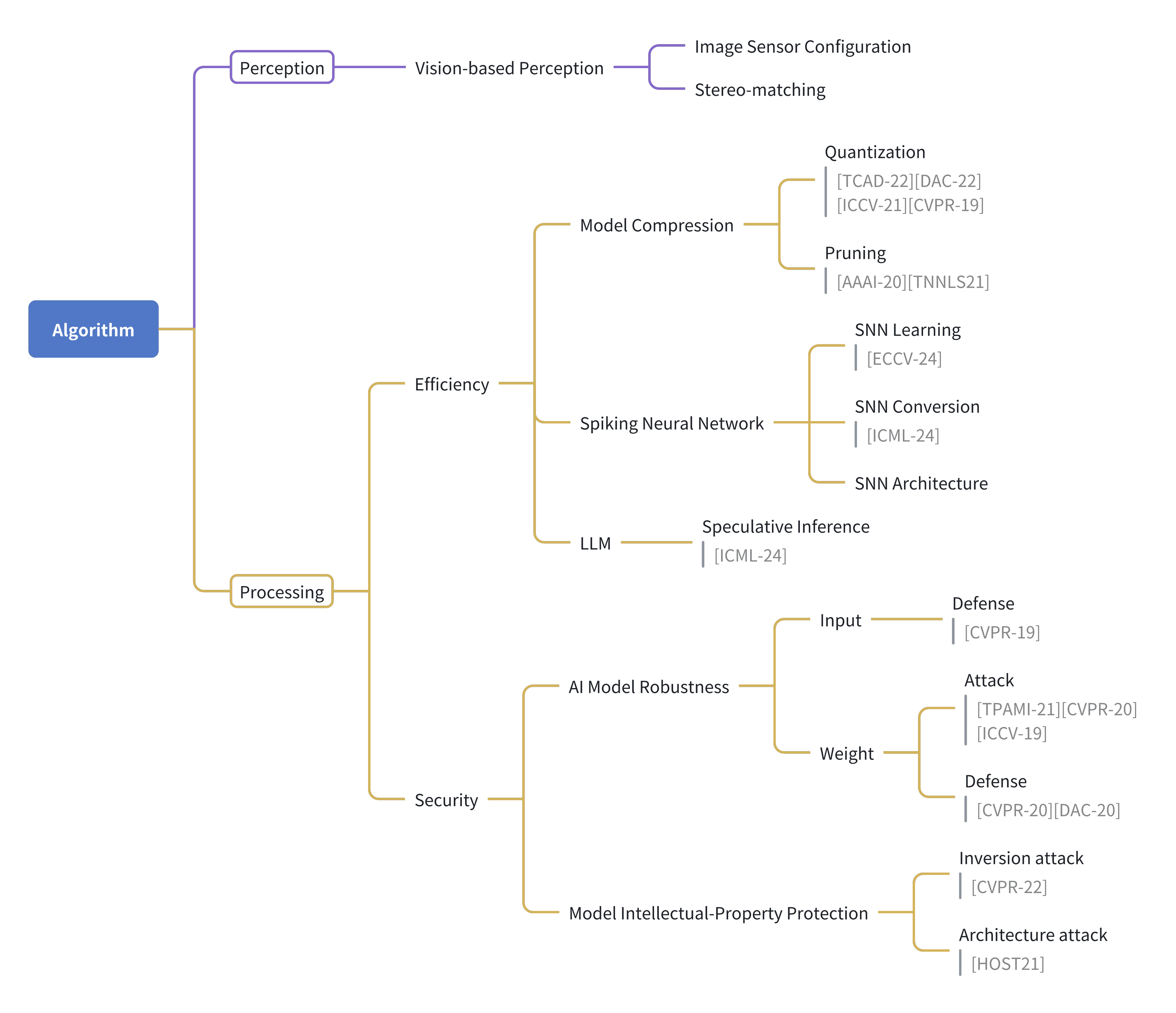Algorithm

Figure: Mind map of our research in algorithm
1. Efficient and Secure Artificial Intelligence
Introduction: Efficiency and Security are two important topics in the modern artifical intelligence (AI), as AI systems become more prevalent in our daily lives. The goal of efficient AI is to develop algorithms and models that can perform complex tasks while using minimal computational resources. On the other hand, secure AI focuses on developing techniques and methods that ensure the privacy and security of data used by AI systems. As AI systems rely on large amounts of data, often personal and sensitive information, protecting this data is crucial for maintaining user trust and preventing malicious attacks.
Efficient and secure AI is an interdisciplinary field that draws on expertise from computer science, mathematics, statistics, and other areas. Research in this field involves developing new algorithms, models, and techniques that can balance the competing demands of efficiency and security. The results of this research have the potential to revolutionize many areas of our lives, from healthcare and finance to transportation and communication.
2. Algorithm for Intelligent System
2.1 Vision-based Perception
Vision-based perception is a field of computer vision that aims to enable machines to interpret and understand visual information from the surrounding environment. It involves developing algorithms and techniques to extract meaningful information from visual data, such as images and videos, and use it to make decisions or take actions.
Meanwhile, stereo vision-based depth estimation is a vision-based perception technique. It uses visual information from two cameras (i.e., stereo cameras) to perceive the depth of objects in a scene. By comparing the differences between the images captured by the two cameras, stereo vision algorithms can estimate the distance to objects in the scene. This technique is widely used in robotics, autonomous vehicles, and augmented reality applications, among others, to provide accurate 3D perception of the environment.
